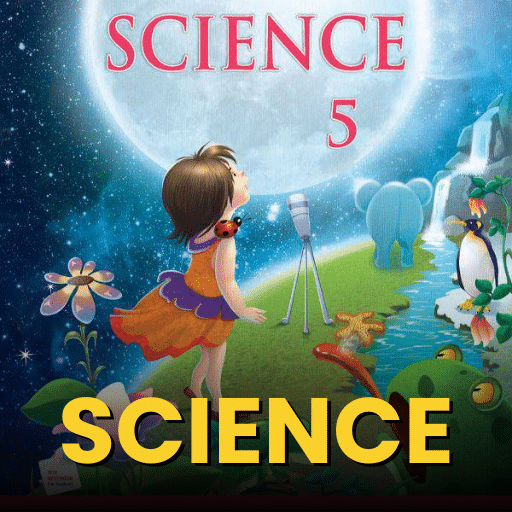Why do we need Ethics | UPSC Mains: Ethics, Integrity & Aptitude PDF Download
Why do we need Ethics?
Ethics help us navigate the area between what is right and morally wrong. They provide the structure that allows us to decide what we can be proud of in the context of our societal, familial and personal value structures.
Some of the prime examples are:
➤ 1.1. Environmental Ethics
- Environmental ethics is the branch of ethics that studies the relationship between human actions and the natural environment. Environmental ethics treat the environment as a part of society. It is about environmental values and societal attitudes related to protecting and sustaining biodiversity and ecological systems.
- Increasing pollution, depletion of natural resources, dwindling plant and animal biodiversity, the loss of wilderness, the degradation of ecosystems, and climate change are all part of a raft of "green" issues that have implanted themselves into both public consciousness and public policy in recent years. The job of environmental ethics is to outline our moral obligations in the face of such concerns.
- The two fundamental questions that environmental ethics must address are: what duties do humans have concerning the environment, and why? The latter question usually needs to be considered prior to the former.
- To tackle just what our obligations are, it is usually thought necessary to consider first why we have them. For example, do we have environmental obligations for the sake of human beings living in the world today or for our future generations, or for the sake of entities within the environment itself, irrespective of any human benefits in terms of ecosystem services?
- Different ethical approaches give quite different answers to this fundamental question and have led to quite different environmental ethics.
Ecological values are part of Indian tradition where nature was revered for its services to mankind. Various environmentalists such as Baba Amte have also spread awareness about ecological balance and wildlife preservation. They believed that humans have to live in harmony with nature, not by exploiting nature and motivated people to adopt a sustainable development model that would be beneficial for both mankind and nature.
Some of the ecological values are:
- Sustainability - steps should be taken to ensure that we reduce pollution levels and wasteful consumption of natural resources.
- Co-existence - with plants and wildlife with treating them alike humans
- Conservation - stress on conserving resources by finding natural alternatives
- Environment-centric - ethical principles should revolve around humans and their needs and environment and requirements.
- Collectivism and individualism - take collective efforts to ensure conservation while also recognizing the importance of individual human actions.
- Holistic - environment needs to be conserved in total and not in bits and parts which results in wastage of efforts of conservation
➤ 1.2. Business Ethics
- Business ethics represents a set of ethical principles applied in a business environment. It applies to all activities and individuals of an organization.
- Many firms develop detailed codes of conduct to guide people employed in their organization. Thus, business ethics can be termed as the study of the content and effectiveness of these codes of conduct.
- Business entities should have the moral responsibility for what they do. For example - responsibility of treating their employees well, responsibility of respecting the environment from which they draw resources, responsibility for its product's impact on consumers, etc. Corporate reputation is dependent on the level of morality adopted in corporate operations. Some examples of ethical business practices can be:
- Not being tempted to cheat, deceive or manipulate others
- Following laws and regulations that structure market and organizations in letter as well spirit.
However, laws cannot cover all the business practices. Thus, law leaves gaps which businesses can exploit. This is where business ethics comes in. Businesses should not exploit market when market is failing due to externalities or imperfect information.
Business ethics to consumers
Firms, in their engagement with consumers, should follow certain ethical practices such as
- Maintaining standards in the production of goods and services such as healthcare, pharma production etc. to ensure safety of the users consuming it
- Giving true picture of the product to consumers in advertisements
- Not undertaking sale of inappropriate products such as illegally obtained organs, drugs, sexual services etc. which demean humanity's intrinsic value by treating it merely as a means to generate profits.
Business ethics for employees
Firms should take care of following issues while dealing with their employees
- Non-discrimination - The employees should be treated strictly according to the basis of the merit they possess to the job
- Pay commensurate to their efforts - Employee should be paid according to the contribution he/she made towards success of the organization.
Other aspects of business ethics will be covered in detail as part of "corporate governance".
➤ 1.3. Ethical Management
- Ethical management is the incorporation of ethics in management i.e. one should refrain from bad management practices. Managerial ethics is the set of standards that dictate the conduct of manager operating within a workplace.
- There are no legal rules or laws formulated for this purpose. Instead, the company's ethics code is assembled to guide its managers. It typically references shared values, principles and company policies about primary conduct and outlines the manager's duties towards employees, the company and its stakeholders.
- Although not enforceable, managers who consistently ignore certain company's ethics may be asked to step down. Examples include having a code of conduct to use company's equipment such as telephone or cab service for personal use, giving fair opportunity to subordinates to express their grievances, or prior declaration of any conflict of interest situation such as accepting gifts from vendors, etc.
Kindly note: Business ethics and Ethical Management (Managerial Ethics) are slightly different. Business ethics affects the parties that are influenced by actions of the business. It is a standard for enterprise decision making and action. Ethical management concerns more with standards of personal behavior for managers to deal with employees and other stakeholders.
Also note: Management of ethics is different. To manage ethics means to create a set of principles or code for all to comply with ethical behavior. It is how one deals with conflicts of interests and dilemmas to make an ethically sound decision, how one manages to direct his/her's actions and satisfy his/her's conscience to move towards ethical path.
➤ 1.4. Ethical Conflicts in Cosmopolitan Culture and Urbanisation
- Economic development and desire for well-being have made the phenomenon of rapid urbanization and cosmopolitanism a de-facto feature of modern society.
- This leads to enhanced job opportunities, rise in living standards, economic progress of a nation, rise in awareness, assertive demands regarding provision of services by government, etc.
- Cosmopolitanism is the ideology that all human beings belong to a single community with similar set of moral principles. Theoretically, here everyone can retain their individual and cultural integrity while also keeping themselves open to the larger world.
Cosmopolitanisation and urbanization are associated with the following values:
- Inclusivity, oneness, human rights and dignity, cultural diversity, solidarity, equality
- Openness, good governance, responsibility and accountability, democracy
- Globalization, modernism, industrialization, consumerism, liberalization
- Opposition to chauvinism, social justice, peace
- Collective Intelligence through information
However, they also give rise to various ethical conflicts such as:
- Environmental sustainability versus use of resources for development projects - Large projects such as mining, building dams, power projects etc. are required to meet people's rising demands and improve standard of living. This is in direct conflict with the question of sustainability i.e., optimum utilization of resources by present generation so that sufficient resources are available for the generations to come.
- Rising inequality and the condition of poor and vulnerable - The fruits of economic growth have been appropriated by only a few and thus, it has led to immense inequality. The conditions of people living in urban slums and squatters versus the gated communities in metros reflect the divide that urbanization has created and is perpetuating.
- Conflict of resources - Although people are migrating to urban areas, following a cosmopolitan culture, the vast population growth in urban areas leads to resource crunch in terms of land, water, infrastructure, etc.
Thus, many people living in small spaces, with low water accessibility and congestion on roads etc. - Salad bowl vs Melting pot model of society - Due to cosmopolitanisation, many cultures have lost their identity and are increasingly being subsumed and consumed by the world's dominant cultures.
- Global versus Regional Values - In opposition to melting pot model, regional and local cultures are asserting themselves strongly as a reaction to globalization.
- Cultural diversity versus cultural clashes - the opportunities in these areas bring people from various backgrounds and cultures here and enable them to get exposure to them. But this diversity at times leads to clashes when some people are not open to new culture.
- Individualization versus collectivism - increasing individualization in urban areas results in new social structures where the traditional family is not as dominant as before. Self-interest seems to have taken over other values.
- Lifestyle Changes versus healthy routine - People have begun to associate themselves more with the Mcdonaldistion than their traditional diverse cuisines and habits.
|
78 videos|100 docs
|
FAQs on Why do we need Ethics - UPSC Mains: Ethics, Integrity & Aptitude
| 1. Why do we need ethics? |  |
| 2. How does ethics impact our personal lives? |  |
| 3. How does ethics affect professional conduct? |  |
| 4. How does ethics impact society? |  |
| 5. How can ethics help in resolving conflicts? |  |



























